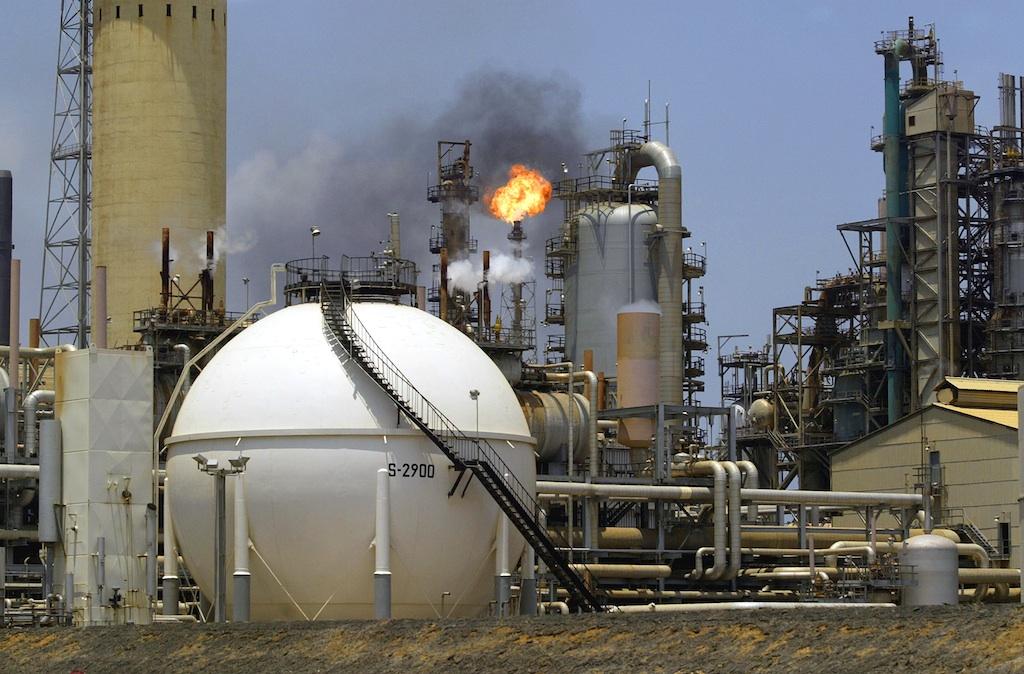Venezuela refinery blast kills at least 39 (VIDEO)
A controlled flame burns behind a storage tank in the oil refinery complex of Amuay-Cardon in Paraguana, located about 350 miles West of Caracas, Venezuela. Amuay-Cardon, one of the world’s largest oil refineries, suffered an explosion that killed at least 26 people Saturday.
An explosion at a Venezuela refinery plant has killed at least 39 people and injured 80 others.
The blast at the Amuay plant, one of the world's largest, has also halted production for at least two days and damaged the surrounding houses, according to BBC News. The fire has since been brought under control.
"The gas cloud exploded, igniting at least two storage tanks and other facilities at the refinery," Energy Minister Rafael Ramirez told state TV. "It was a significant explosion, there is appreciable damage to infrastructure and to houses opposite the refinery."
Venezuelan leader Hugo Chavez declared three days of national mourning for the victims of the explosion, BBC News reported.
"I want to send out to the families of those who died, civilians and military, all our pain, mine, that of all my family, everyone in the national government and the people of Venezuela," Chavez said. "It has been decided to have three days of mourning, national mourning because this affects everyone in the big family of Venezuela."
Among the victims of the explosion, which was caused by a gas leak that ignited, was a 10-year-old boy, the Los Angeles Times reported. 18 of the victims were National Guard troops stationed at the refinery, and 15 were civilians, according to BBC. Six bodies have still not been identified.
More from GlobalPost: Venezuela sends 'deepest condolences' to Syria regime
Vice President Elias Jaua, who traveled to the scene of the accident in the western part of Venezuela, said the authorities were "trying to save the greatest number of lives."
"We are deploying our whole fire service team, all our health team, the whole contingency plan on the orders of Comandante Chavez to treat the people affected by this emergency," Falcon state governor Stella Lugo told state TV, Reuters reported.
Venezuelan President Hugo Chávez said that the explosion was "sad and painful," The New York Times reported.
“We don’t have anything to hide,” Chávez, who said he would launch an investigation into the blast. “We have to overcome this tragedy.”
The story you just read is accessible and free to all because thousands of listeners and readers contribute to our nonprofit newsroom. We go deep to bring you the human-centered international reporting that you know you can trust. To do this work and to do it well, we rely on the support of our listeners. If you appreciated our coverage this year, if there was a story that made you pause or a song that moved you, would you consider making a gift to sustain our work through 2024 and beyond?
